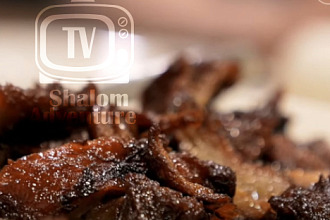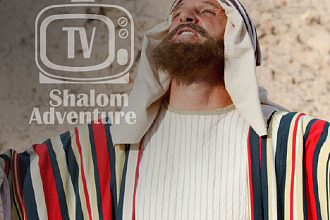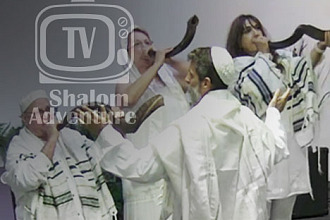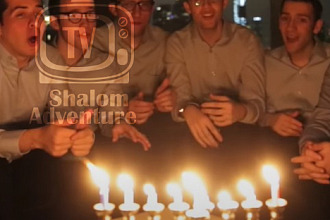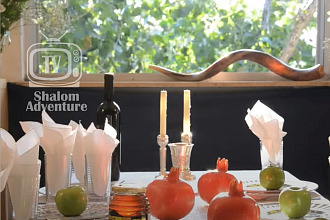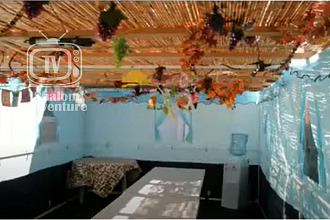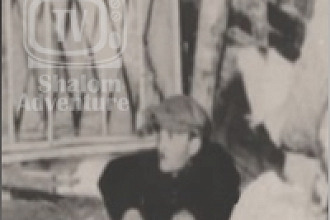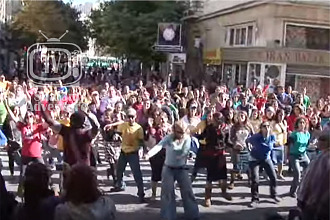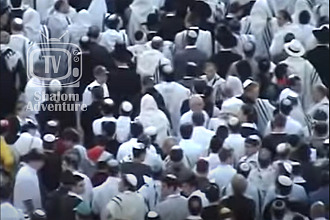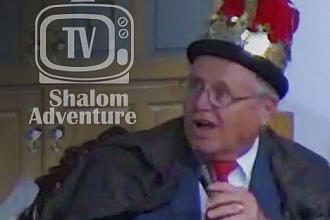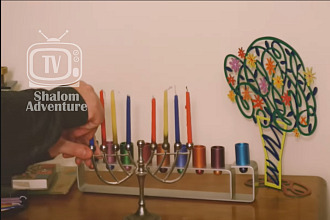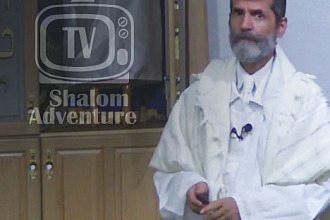The Kol Nodre (“all vows”) refers to a series of Aramaic prayers that the Jewish people sing to commence services on the eve of Yom Kippur, just immediately prior to sunset.
This is a beautiful rendition of Kol Nidre. It is somewhat controversial in Jewish culture as some believe it to be more rabbinic tradition than Torah truth, and started at a time when the Jewish people were under much distress, facing death for not choosing Christianity or Islam. Sometimes it is even recited three times at services so that anyone who shows up to services late can still partake in the special annual prayer. One translation of the prayers is posted below:
| אוֹר זָרוּעַ לַצַּדִּיק | Ohr zaroo-ah latzadeek | Light is sown for the righteous |
| וּלְיִשְׁרֵי לֵב שִׂמְחָה | u-l’yishrei lave simchah | and for the upright in heart—joy |
| The following declaration is made by the cantor and repeated three times: | ||
| עַל דַּֽעַת הַמָּקוֹם | ahl da’at hamakom | With the consent of the Almighty, |
| וְעַל דַּֽעַת הַקָּהָל | vee-al da’at hakahal | and consent of this congregation, |
| בִּישִׁיבָה שֶׁל מַֽעְלָה | beesheevah shel ma’alah | in a convocation of the heavenly court, |
| וּבִישִׁיבָה שֶׁל מַֽטָּה | u-beesheevah shel matah | and a convocation of the lower court, |
| אָֽנוּ מַתִּירִין | ah-noo mahteereen | we hereby grant permission |
| לְהִתְפַּלֵּל עִם הָעֲבַרְיָנִים | l-hitpalel bayn ha-abaryaneem | to pray with transgressors |
| כָּל נִדְרֵי | kol nidrei | All vows, |
| וֶאֱסָרֵי | veh-essaray | and things we have made forbidden on ourselves, |
| וּשְׁבוּעֵי | u-sh’vooh-ay | and oaths, |
| וַחֲרָמֵי | vacharamay | and items we have consecrated to the Temple, |
| וְקוֹנָמֵי | vih-konamay | and vows issued with the expression “konum,” |
| וְכִנּוּיֵי | vih-cheenooyay | and vows which are abbreviated, |
| וְקִנוּסֵי | vih-keenoosay | and vows issued with the expression “kanos,” |
| דִּנְדַֽרְנָא | dindahrnah | that we have vowed, |
| וּדְאִשְׁתַּבַּֽעְנָא | u-d’eeshtahbahnah | and sworn, |
| וּדְאַחֲרִימְנָא | u-d’achareemnah | and dedicated, |
| וּדְאָסַֽרְנָא עַל נַפְשָׁתָֽנָא | u-d’ahsahrnah ahl nahfshatahnah | and made forbidden upon ourselves; |
| מִיּוֹם כִּפּוּרִים זֶה | meeyom keepooreem zeh | from this Yom Kippur |
| עַד יוֹם כִּפּוּרִים | ahd yom keepoorim | until next Yom Kippur— |
| הַבָּא עָלֵֽינוּ לְטוֹבָה | hahbah ahlaynoo l’tovah | may it come to us at a good time— |
| בְּכֻלְּהוֹן אִחֲרַֽטְנָא בְהוֹן | bihchoolhone eecharahtnah b’hone | We regret having made them |
| כֻּלְּהוֹן יְהוֹן שָׁרָן | coolhone y-hone shahrahn | may they all be permitted |
| שְׁבִיקִין, שְׁבִיתִין | sh’veekeen, sh’veeteen | forgiven, eradicated |
| בְּטֵלִין וּמְבֻטָּלִין | bihtayleen u-m’vootahleen | and nullified, |
| לָא שְׁרִירִין | lah sh’reereen | and may they not be valid |
| וְלָא קַיָּמִין | v’lah kayameen | or exist any longer. |
| נִדְרָֽנָא לָא נִדְרֵי | needranah lah nidrei | Our vows shall no longer be vows, |
| וֶאֱסָרָֽנָא | veh-ehsahrahnah | and our prohibitions |
| לָא אֱסָרֵי. | lah ehsarei | shall no longer be prohibited, |
| וּשְׁבוּעָתָֽנָא לָא שְׁבוּעוֹת | oosh’vooahtanah lah sh’voo’ote | and our oaths are no longer oaths. |
| The cantor and congregation say three times: | ||
| וְנִסְלַח לְכָל עֲדַת | v’nislach l’chol adaht | Forgive the entire congregation |
| בְּנֵי יִשְׂרָאֵל | b’nay yisrael | of the children of Yisrael |
| וְלַגֵּר הַגָּר בְּתוֹכָם | v’lahgare hagahr b’tochahm | and the stranger amongst them |
| כִּי לְכָל הָעָם בִּשְׁגָגָה: | kee l’kole ha’ahm bishgahgah | for the entire people sin unintentionally. |
| סְלַח נָא לַעֲוֹן הָעָם הַזֶּה | s’lach nah la’avone ha’am hazeh | Please pardon the sins of this nation |
| כְּגֹֽדֶל | kih goh-dell | in accordance with the greatness |
| חַסְדֶּֽךָ | chas’dechah | of Your lovingkindness; |
| וְכַאֲשֶׁר נָשָֽׂאתָה לָעָם הַזֶּה | vih ka’ashare nahsahtah la’am hazeh | and as You forgave this people |
| מִמִּצְרַֽיִם וְעַד הֵֽנָּה: | mee-mitzrayim v’ad haynah | from when it left Egypt until now. |
| וְשָׁם נֶאֱמַר | v’shahm ne’emahr | And there it is said: |
| Congregation says three times: | ||
| וַיֹּֽאמֶר יְהֹוָה | vah-yoe-mare adonai | And Adonai said |
| סָלַֽחְתִּי כִּדְבָרֶֽךָ | sah-lach-tee kid’vorecha | “I have pardoned [them] as you have asked” |


